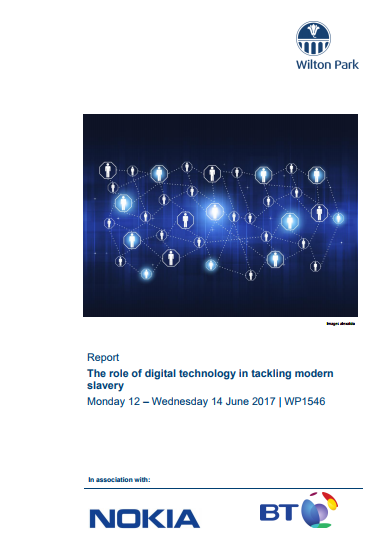Modern slavery is a complex, thriving crime that impacts every country. There are an estimated 45.8 million people worldwide in some form of slavery, generating many billions of dollars in illegal profits. Organised crime is heavily involved and attracted by the high-profits but, in spite of legislation and increasing efforts to raise public awareness, the crime remains largely hidden. The global supply chain demand for cheap labour remains a significant systemic driver. Perpetrators of modern slavery are increasingly using modern technology to exploit people, for example by recruiting victims through online grooming and controlling them through mobile phones and webcam surveillance.
However, it is encouraging that even within this challenging context, digital information and communication technologies can provide opportunities for a step change in tackling modern slavery. Technology could be a powerful tool to: disrupt and reduce modern slavery; prevent and identify crimes; and provide a remedy mechanism for victims and support survivors. It could also play a significant role in addressing data gaps and increasing the efficiency of data sharing, leading to more effective use of resources and co-ordination between law enforcement, businesses, government and civil society.
The conference sought to explore these opportunities, bringing together experts from governments, law enforcement, international and civil society organisations, academia and technology providers. The aims were to:
- Understand how and where technology is being used to facilitate and enable slavery
- Consider positive ways that digital technology can be used to tackle the crime and support victims
- Explore prospects for greater multi-stakeholder cooperative
- Identify tangible steps towards the next stage of cross-sector coordination
Experts discussed their perspectives to help understand where technology solutions could be deployed to make an effective impact, using a ‘5P’ framework of Pursue, Prevent, Protect, Prepare and Partnership, to guide discussions across the three days.

